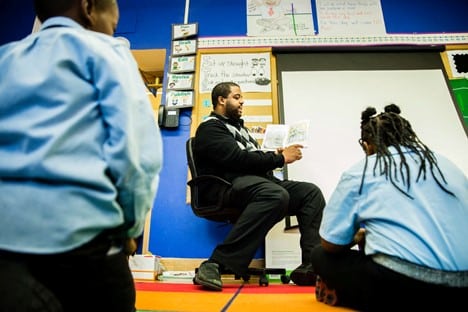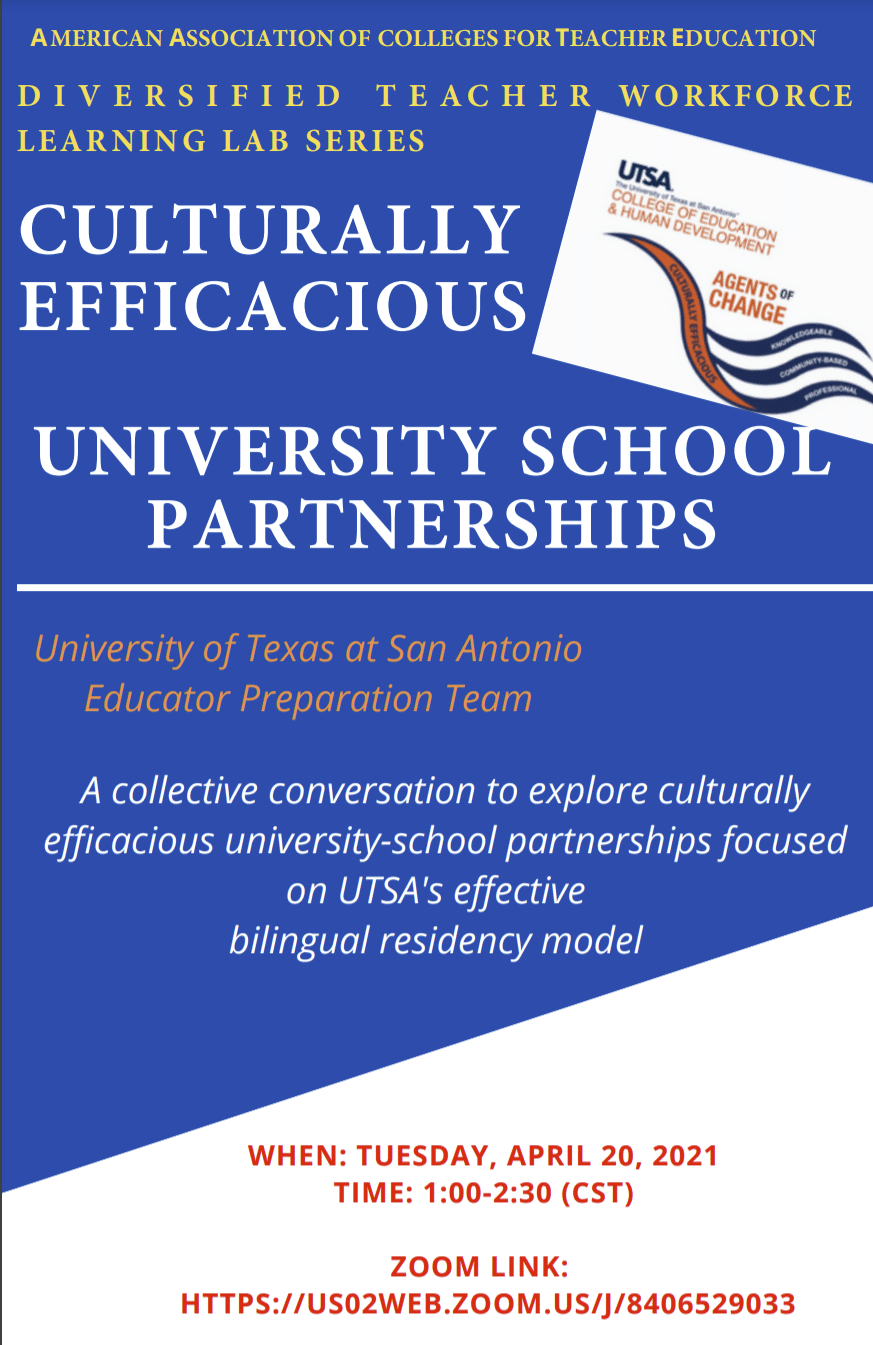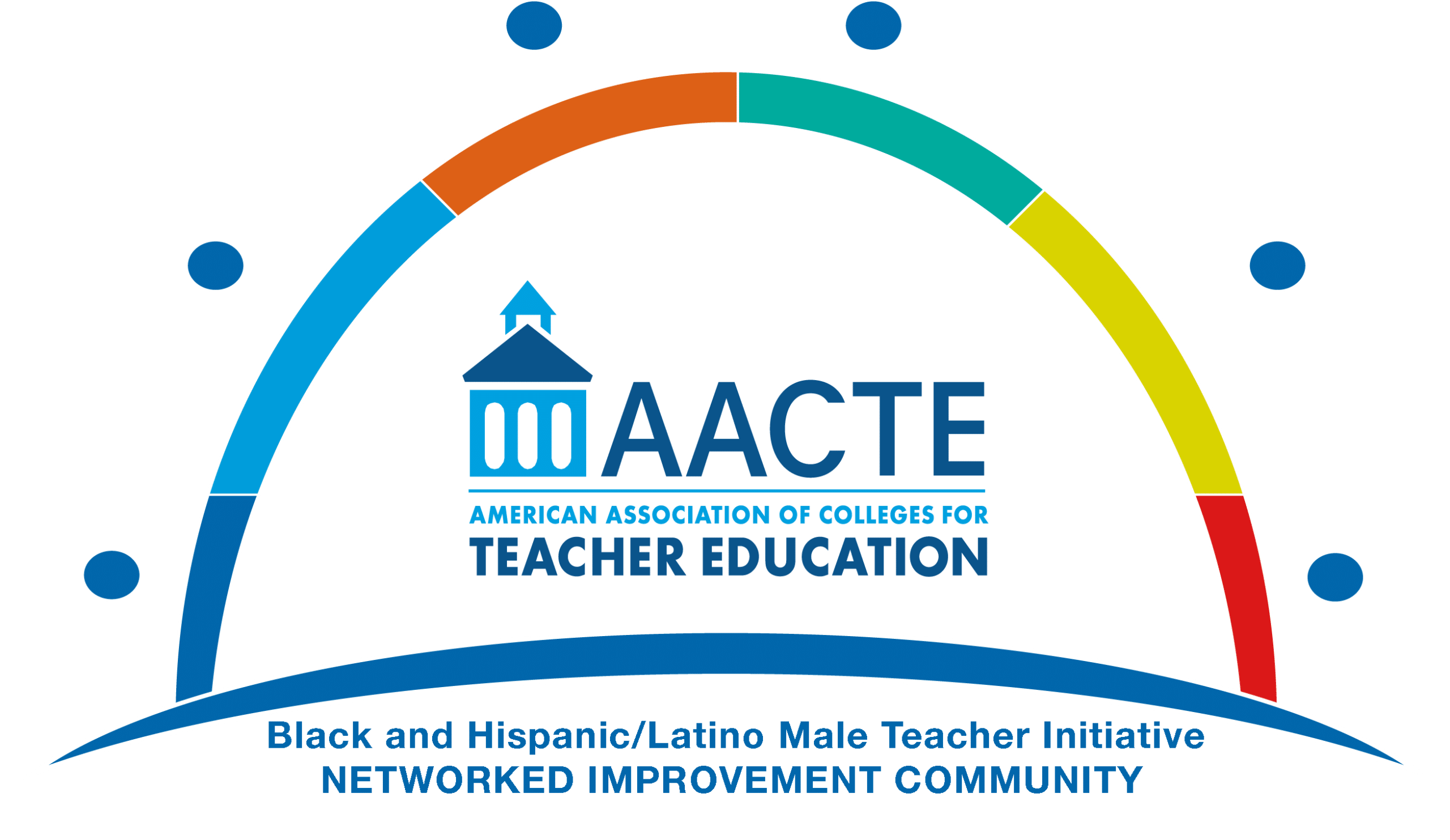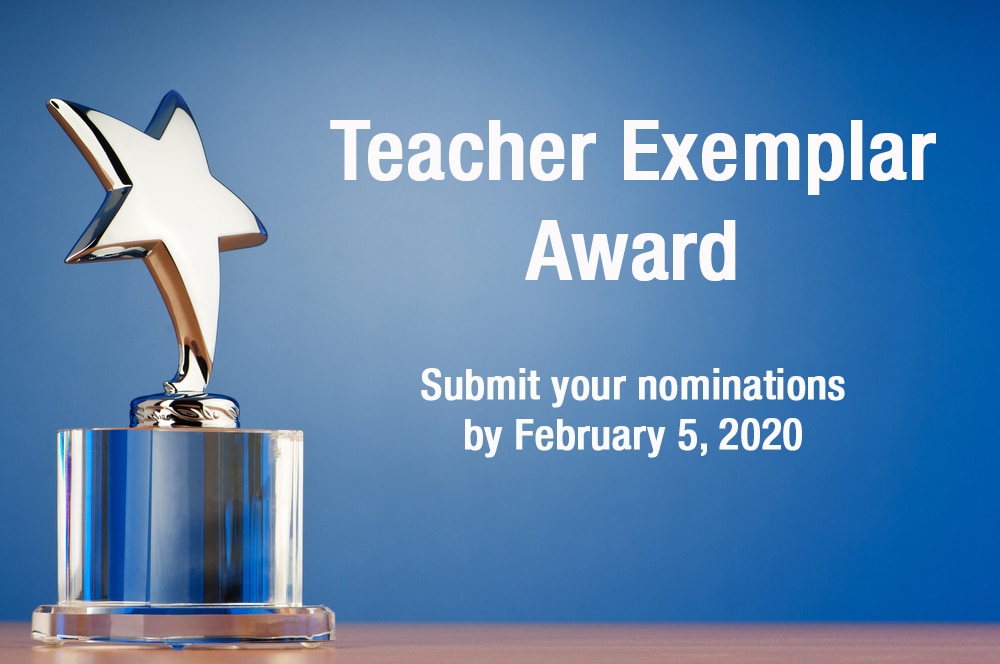07 Jun2021
By Amy Carlson Gustafson

This article originally appeared on the University of St. Thomas Newsroom and is reprinted with permission.
The School of Education at St. Thomas is making inroads to increase the number of people of color who choose to become teachers, and national organizations are recognizing its efforts. In March, the school received notice that the Association of Colleges for Teacher Education (AACTE) accepted its proposal to be part of a consortium to increase equitable access to teaching.
Only around 6% of licensed Minnesota teachers identified as Black, Indigenous and people of color (BIPOC), while 38% of students in the state are nonwhite, according to state data. In efforts to help close that gap, the School of Education will join with other AACTE members to examine entrance requirements for teacher preparation programs. This collaboration exemplifies just one more way in which the school has been working to grow the number of diverse teachers through a variety of programs, including key partnerships.
16 May2021
By Maria Salciccioli and Gretchen Mills

Prepared to Teach and WestEd have partnered on the Sustainability Project, a series of reports and interactive tools to support high-quality, financially sustainable teacher preparation. Three reports are being released this week through that project. Two are co-authored by Prepared to Teach and WestEd—Beyond Tuition, Costs of Teacher Preparation, and Going Further Together: Building Ownership and Engagement to Support High-Quality Teacher Preparation. The co-authored papers are being released simultaneously with a third piece authored by Prepared to Teach – Dollars and Sense: Federal Investments in Our Educator Workforce.
AACTE members know that aspiring teachers need high-quality, affordable options for teacher preparation—and research has shown that when candidates from diverse backgrounds have access to excellent programs, everyone benefits. Graduates of these programs stay in the classroom for longer and are more well-prepared than their peers who become teachers through faster, less rigorous pathways to the classroom.[1]
12 May2021
By Ward Cummings
 The Ohio Deans Compact on Exceptional Children has a mission to act collectively in support of improved learning and results for all children, but especially those from marginalized groups. Compact serves as a forum for shared learning and collective action. Due to its efforts, critical connections have been made within and outside the state through representation from key stakeholder groups, including the members of Ohio Association of Colleges for Teacher Education and AACTE.
The Ohio Deans Compact on Exceptional Children has a mission to act collectively in support of improved learning and results for all children, but especially those from marginalized groups. Compact serves as a forum for shared learning and collective action. Due to its efforts, critical connections have been made within and outside the state through representation from key stakeholder groups, including the members of Ohio Association of Colleges for Teacher Education and AACTE.
The 30-member organization meets quarterly and is comprised of leaders from the Ohio Department of Education and the Ohio Department of Higher Education (ODHE). Compact members participate on one of four standing committees (Dissemination, Impact Evaluation, Low Incidence, Policy). Institutions that are awarded incentive grants through the Compact participate in a facilitated community of practice (CoP), which serves as a peer-to-peer network for representatives from public and private institutions.
05 May2021
By Weade James

AACTE is pleased to announce the selected states for the Consortium for Research-Based and Equitable Assessments (CREA), a new initiative supported by the Bill & Melinda Gates Foundation. The Consortium, comprised of 14 state teams that include educator preparation programs (EPPs) and their state and local education agencies, will evaluate cut scores for entrance into EPPs, and develop recommendations and model state policies to support state efforts to advance equity and recruit more diverse teacher candidates into the profession.
The 14 selected states and institutions include the following:
30 Apr2021
By Jerrica Thurman

The Tennessee Department of Education is offering Grow Your Own grants to educator preparation programs (EPPs) who work with the state’s school districts. The $2 million grants are available to help remove barriers and increase access to the education field for prospective teachers in Tennessee. The May 7 application deadline is quickly approaching! Application requirements and additional information are available here.
The Grown Your Own initiative supports partnerships between EPPs and Local Education Agencies (LEAs) to provide innovative, no-cost pathways to the teaching profession by increasing EPP enrollment and growing the supply of qualified teachers to serve the state’s diverse student population. It provides no-cost access to a pathway to teaching to meet the need for increased diversity as well as to address the state’s teacher shortage. The second round of grants will provide 20 EPPs with $100,000 for their programs.
23 Apr2021
By Colleen Beaudoin

The University of Tampa (UT) announced a partnership last month with Pasco County Schools that will provide Pasco educators interested in taking leadership roles a path to pursue either a certification in educational leadership or a master’s degree in educational leadership.
According to the agreement, the partnership is intended to “increase the supply of effective school leaders in public schools in Florida, and to produce school leaders who are prepared to lead the state’s diverse student population in meeting high standards for academic achievement.”
19 Apr2021
By David Fuentes and Amy Ginsberg
In the following article, David A. Fuentes and Amy Ginsberg of the College of Education at William Paterson, a member of AACTE’s Network Improvement Community (NIC) Black and Hispanic/Latino Male Teacher Initiative, take a deep dive into their efforts to increase dual enrollment opportunities as a preemptive recruitment strategy. They provide insight into how network improvement science can be used to identify levers within education preparation program systems that can improve recruitment and retention of diverse teacher candidates.
To learn more about NIC members’ initiatives to recruit and retain Black and Latina males, watch the Building Recruitment Pathways, a segment of AACTE’s new NIC video case studies series.
Building and Sustaining Recruitment Pathways for Black and Latino Male Teachers
 In 2014, our College of Education at William Paterson University, a Hispanic Serving Institution (HSI) and Minority Serving Institution (MSI), located in the greater New York City area, was selected as one of ten universities to participate in the AACTE Network Improvement Community (NIC), aimed at increasing the number of Black and Latino/Hispanic male teachers (BLMs). Since that time, we have been engaged in iterative cycles of plan-do-study-act (PDSA). This systematic research first led to our becoming NIC mindful and then to several structural changes in our College of Education that make our efforts aimed at teacher diversification more possible today in both theory and practice. We have uncovered, implemented, and tested the efficacy of several structural changes at our institution targeting key drivers, recruitment and retention, while implementing new structures based on network improvement science and our desire and commitment to diversify our teacher candidate pool.
In 2014, our College of Education at William Paterson University, a Hispanic Serving Institution (HSI) and Minority Serving Institution (MSI), located in the greater New York City area, was selected as one of ten universities to participate in the AACTE Network Improvement Community (NIC), aimed at increasing the number of Black and Latino/Hispanic male teachers (BLMs). Since that time, we have been engaged in iterative cycles of plan-do-study-act (PDSA). This systematic research first led to our becoming NIC mindful and then to several structural changes in our College of Education that make our efforts aimed at teacher diversification more possible today in both theory and practice. We have uncovered, implemented, and tested the efficacy of several structural changes at our institution targeting key drivers, recruitment and retention, while implementing new structures based on network improvement science and our desire and commitment to diversify our teacher candidate pool.
09 Apr2021
By Amanda Morales
 Join the AACTE Diversified Teacher Workforce Topical Action Group (TAG) Learning Lab on Building Culturally Efficacious University-School Partnerships on Tuesday April 2O, 1:00 -2:30 p.m. (CST) via the Zoom: https://us02web.zoom.us/j/8406529033
Join the AACTE Diversified Teacher Workforce Topical Action Group (TAG) Learning Lab on Building Culturally Efficacious University-School Partnerships on Tuesday April 2O, 1:00 -2:30 p.m. (CST) via the Zoom: https://us02web.zoom.us/j/8406529033
Across the field of education (PK-20) students, teachers, administrators, professors, and program leaders continue to witness and lament the chronic disparities in representation and lack of ethno-racial and linguistic diversity among teachers (relative to their students) in our nation’s schools. And in the wake of a global pandemic, enduring civil unrest, and calls for racial justice related to systemic anti-Blackness and anti-immigrant within all aspects of society, educational institutions are being forced to engage in introspection with greater magnitude. Teacher preparation programs in particular are feeling increased pressure to recruit, retain, and effectively prepare a highly-qualified, racially-literate, diverse pool of candidates as districts scramble to hire teachers with the content knowledge and pedagogical skills as well as the cultural and linguistic competencies needed to meet the needs of their increasingly diverse student populations.
06 Apr2021
By Nicole Dunn

With the exacerbation of our nation’s teacher shortage brought on by the pandemic, the new White House administration will need to address this crisis strategically, keeping equity top of mind. As AACTE looks forward to improving the capacity and representation in the teacher workforce, it is essential for policy makers to tie decisions back to the historical context of structural oppression that has created barriers for a diverse teacher workforce in the past. As part of the AACTE Network Improvement Community (NIC) Black and Hispanic/Latino Male Teacher Initiative, NIC members identified a number of barriers and solutions to these obstacles, which are highlighted in Reducing Barriers, a segment of AACTE’s new NIC video case studies series.
26 Mar2021
By AACTE

The American Association of Colleges for Teacher Education (AACTE) released today its new video series featuring promising practices for recruiting and retaining male teachers of color. AACTE created the Black and Hispanic/Latino Male Teacher Initiative Networked Improvement Community (NIC), which included a 5-year study by 10 AACTE member institutions that implemented improvement science to address the shortage crisis of Black and Hispanic/Latino profession-ready male teachers. Key findings from their research are featured in the video case studies, where the NIC participants present their experiences and lessons learned. NIC members describe effective ways for reducing barriers, developing partnerships, building recruitment pathways, providing mentorship, and offering faculty training to diversify the profession.
16 Mar2021
By Candace Johnson and Michael Douglas

Houston Endowment has awarded Prairie View A&M University’s Whitlowe R. Green College of Education (WRGCOE) one of the college’s largest grants in its 141-year history. The foundation is investing $1.5 million in the College to support PVAMU’s Educator Preparation Program, increasing the number of qualified teachers of color and preparing the educators for long-term success. The grant is part of $20M in funds the Houston Endowment awarded to several Houston area organizations committed to making racial equity and social justice in Houston a reality.
09 Mar2021
By E. Wyatt Gordon

Learner-centered design (LCD) has become a key component of digital products and platforms; curriculum and lesson planning; and non-didactic pedagogical approaches. This paradigm foregrounds the needs of learners by meeting learners where they are. LCD proposes that all designed environments should be built around the goals, needs, activities and educational contexts of users. In essence, LCDs allow for the incorporation of the whole learner by using their preferences, strengths, weaknesses, and interests as assets that can be leveraged to strengthen learning experiences.
22 Feb2021
By Weade James

AACTE recognizes the challenges that many of our members are facing because of the recent winter storms. We believe that your safety and well-being are most important. As such, we are extending the application deadline for the Consortium for Research-Based and Equitable Assessments (CREA). The new deadline to apply is March 5 at 11:59 p.m. EST.
We appreciate the overwhelming interest that have been expressed to join the Consortium and hope that this extension will provide much needed respite to those impacted by widespread power and utility outages, and other challenges to their everyday needs. Given the new deadline, all applicants will be notified of their application decision on March 22, 2021.
Please direct any questions about the Call for Applications to me at wjames@aacte.org.
05 Feb2021
By Jacqueline Rodriguez

Educator preparation programs have experienced a tumult of change in the last 12 months. Many of our members have experienced decreased enrollment in initial licensure teacher education programs, all during a nationwide teacher shortage. Now, more than ever before, it is our responsibility to consider what may be creating barriers for candidates to enter our programs and our profession. AACTE plans to support member institutions’ examination of assessments used for entry into preparation programs and the barriers they create for potential candidates, especially candidates of color.
29 Jan2021
By Bianca Nightengale-Lee

The Teacher Exemplar Award is presented by the AACTE Diversified Teacher Workforce (DTW) Topical Action Group (TAG) to recognize exceptional student/clinical teachers of Color and PK-12 mentor/cooperating teachers who serve as mentors to student/clinical teachers in field experiences. The instructional pedagogies and practices embodied by the recipients of this award reflects the DTW TAG mission and goals and advances our current understanding of the importance of cultivating a diversified teaching workforce that enhances educational opportunities for ethnically, culturally, and linguistically diverse students.
Recipients of these awards have demonstrated effective instructional/pedagogical practices, advocacy skills, and a service-minded disposition toward addressing inequities through their teaching, participation in local community, school, and/or grassroots service efforts. In recognition and honor of this important work, the recipients will receive a $500 honorarium each and be recognized in our 2021 DTW Virtual Institute. Also, the recipients will be asked to participate on the planning committee of the 2022 DTW Institute.









 The Ohio Deans Compact on Exceptional Children has a mission to act collectively in support of improved learning and results for all children, but especially those from marginalized groups. Compact serves as a forum for shared learning and collective action. Due to its efforts, critical connections have been made within and outside the state through representation from key stakeholder groups, including the members of Ohio Association of Colleges for Teacher Education and AACTE.
The Ohio Deans Compact on Exceptional Children has a mission to act collectively in support of improved learning and results for all children, but especially those from marginalized groups. Compact serves as a forum for shared learning and collective action. Due to its efforts, critical connections have been made within and outside the state through representation from key stakeholder groups, including the members of Ohio Association of Colleges for Teacher Education and AACTE.



 Join the AACTE Diversified Teacher Workforce Topical Action Group (TAG) Learning Lab on Building Culturally Efficacious University-School Partnerships on Tuesday April 2O, 1:00 -2:30 p.m. (CST) via the Zoom:
Join the AACTE Diversified Teacher Workforce Topical Action Group (TAG) Learning Lab on Building Culturally Efficacious University-School Partnerships on Tuesday April 2O, 1:00 -2:30 p.m. (CST) via the Zoom: 



